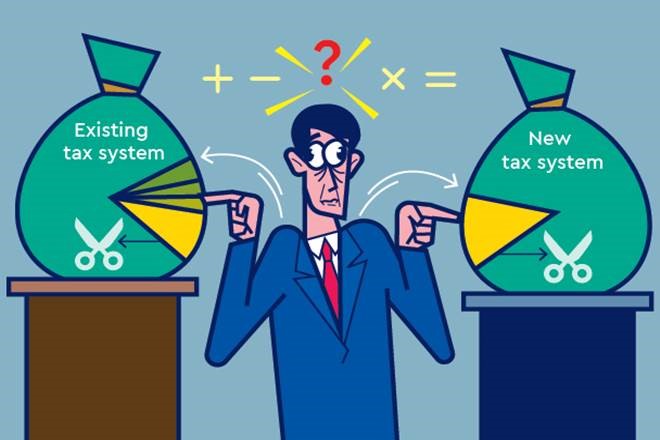Home Page › Forums › Income Tax › New Income Tax Regime or Old Regime: What should a Salaried Taxpayer choose?

The Union budget presented in the Parliament in February 2020, the Finance Minister proposed a New Tax Regime as an alternative to the existing Old Tax Regime for Individual and HUFs. Since the New Tax Regime is optional by all means, a taxpayer now has a choice to make between the New and Old Tax Regime after a careful comparison supported by facts and figures.
Will the taxpayer gain by switching to a new regime? The Ministry of Finance expects four out of five Income taxpayers to move to the new tax regime. It has analyzed the income and investment data of 57.8 million taxpayers and found that 69% would prefer to save on tax under the new system. Another 20% might want to switch to avoid the hassles and paperwork involved in tax planning.
Taxpayer who avail several exemptions and deductions such as house rent allowance and Section 80C deductions may not benefit from switching to the new system. Taxpayer will be able to make the choice depending on their financial situation and depending on what is best suitable from a tax planning point of view. The budget has tried to put more money in the hands of taxpayers by curtailing the incentives to save. Section 80C forces individuals to save, and they will be weaned off savings if there is no tax incentive. The impetus seems to be towards spending, rather than focusing on longer term financial security for taxpayer. Taxpayer who opt for the new tax regime and forgo tax exemptions may end up spending money rather than use it towards their financial safety and security. You don’t really need to do an elaborate calculation to know that which regime to choose. The answer is actually quite simple. Anyone claiming tax exemptions and deductions of more than Rs 2.5 lakh in a year will not gain from the new structure. This threshold of Rs 2.5 lakh includes the standard deduction of Rs 50,000 for which no investment is required. All salaried taxpayers are eligible for this, which leaves only an additional deduction of Rs 2 lakh. Of this, Rs 1.5 lakh is taken care of by Section 80C investments. The average taxpayer also claims exemption for HRA or claims deduction for the interest paid on a home loan. Then there are other deductions such as the contribution to the NPS, the interest on education loans, treatment of illness and for disabilities. There is also the small but widely claimed exemption of up to Rs 10,000 for savings bank interest under Section 80TTA. The earlier one adopts the appropriate tax regime, the earlier would his/her tax burden reduce. For detailed analysis basis the taxable refer this link: http://www.advicehouse.org.in/income-tax/old-vs-new-tax-regime/
Disclaimer: Before making any decisions do consult the experts. Author does not take any responsibility for misrepresentation or interpretation of act or rules. Neither the author nor the Company accepts any liability for the loss or damage of any kind arising out of information in this document or for any action taken in reliance there on.
